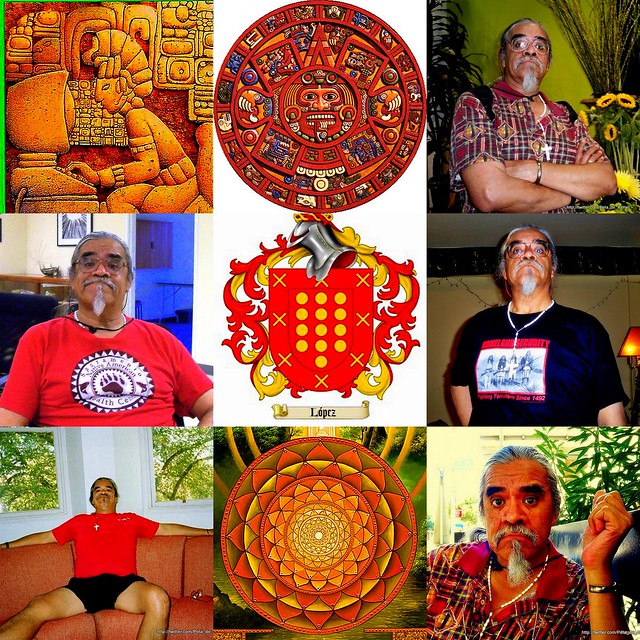"Sylvia S. Spencer" <spences@scc.losrios.edu> wrote:
Hi Peter,Unfortunately, I must comply with the college requirements regarding student attendance. You have far exceeded the college attendance formula. When or by whom do you suggest the DROP come from?Please call me to discuss this matter.Thank you,
From: Peter S. Lopez de Aztlan [mailto:sacranative@yahoo.com]
Sent: Saturday, April 21, 2007 11:09 PM
To: Cervantes, Jose; consoli@sfsu.edu
Cc: owner-nlpa-l@sfsu.edu; Group; Dr._Sylvia` SCC-Spencer; Dr. Linda Olsvig- Whittaker
Subject: Read: [NLPA-L] Psychotherapeutic/counseling perspective4/21/2007 @11:00 AMHola Gente ~ Please allow me to share my spin on this subject.I work as a Counselor/Casework at the local Salvaton Army Homeless Shelter and do not claim to be any kind of an expert nor am I a certified professional, but I do have a some direct experiential insight into these matters.
As a compassionate Counselor, my general approach is to relate to each client/resident as a unique special individual and without pre-conceived notions or rigid criteria yet still holding onto basic humane and pedagogical principles.For all our 'Psychotherapeutic/counseling' the fact remains that we still live in an insane and inhumane society and world. Obviously a lot of people simply are not doing their jobs properly or madness would not be running rampant as I see it in today's society, then, our perspectives are impacted by our own geo-social-political situation.
We need to really look at our client in the eye, listen well to spoken words and how they are spoken, not be judgemental in any kind of rigid academic post, carefully observe posture and body language and promote the spiritual growth of the individual involved.
My suggestion is to not complicate the simple nor be blind to the fact that complexes and complexities do exist. However, we should also know how to simplify the complex.
Related Link:
Of course, our perspectives will be limited by different factors, but the more we can view the subject in question from as many angles, viewpoints and perspectives as possible the better in order to get a fuller and richer picture.
We will see that we can only heal ourselves in the process of healing others. Even the healer needs healing, just as even the educator needs educating.
Educate to Liberate!
Peter S. LopezSacramento, Califas, Aztlan
+++++++++++++++++++++++
"Cervantes, Jose" <jcervantes@Exchange.FULLERTON.EDU> wrote:Teresa,
Congratulations on your success in school. Your question is a frequently asked one. Theory and theoretical conceptualization is driven by a number of factors: one's academic exposure in school, personal life experience, one's own acculturation level, the emotional and psychological needs of the client/family system, among some of the primary influences. In addition, there is a long established literature base that supports the use of a family systems approach to clinical/counseling practice with Latinos. However, even this relevant finding should be modified depending on the needs of the client and the Health Care system where one is based, the presenting problems and psychological/psychiatric history, acculturation level, and the quality of therapeutic rapport that is being established.
My recommendation as you are starting out as a young practitioner is that you just be you. Allow theory to develop as you begin making observations about your own counseling style, what you are paying attention to with clients, how they are responding to you, and what is driving your own healing energy.
Hope that this is helpful to you.
Jose
Joseph M. Cervantes, Ph.D., ABPP
Professor
Department of Counseling
California State University, Fullerton
President, National Latina/o Psychological Association
2007-2009
-----Original Message-----
From: owner-nlpa-l@sfsu.edu on behalf of Teresa Palomino
Sent: Sat 4/21/2007 3:01 PM
To: NLPA
Subject: [NLPA-L] Psychotherapeutic/counseling perspective
Hello Colegas y admirables lideres en la rama de la psicologia,
As I am getting ready to begin my practicum as an MFT trainee in California, I want to ask all of you what would you say is the most prevelant perspective or theory conducted with our familias latinas? o individuos latinos?
How many of you have ever used Object Relations? What would be the percentage of using such theorical process?
Can you tell me the percentage used for Family Systems Theory?
What about any other model?
I am trying to distinguish what theory drives the therapeutic process of our gente. I really admire all of you and your knowledge, and although not sure why I waited until now to ask this question I am interested in finding out from the "front" psicologos y psicoterapeutas, mucho mas por consideraciones con nuestras raices culturales.
Your feedback is well received and greatly appreciated,
Teresa Palomino
Santa Clara University
Latino Mental Health Emphasis (Graduate Program)
__________________________________________________
**************************************************
This is the Electronic Mailing List of the
National Latino/a Psychological Association
Asociacion de Psicologia Latina
www.nlpa.ws
Participation in NLPA-L is a membership benefit.
For questions about NLPA-L please contact
Andres J. Consoli at consoli@sfsu.edu
*************************************************





No comments:
Post a Comment
Please Comment with conscious love!